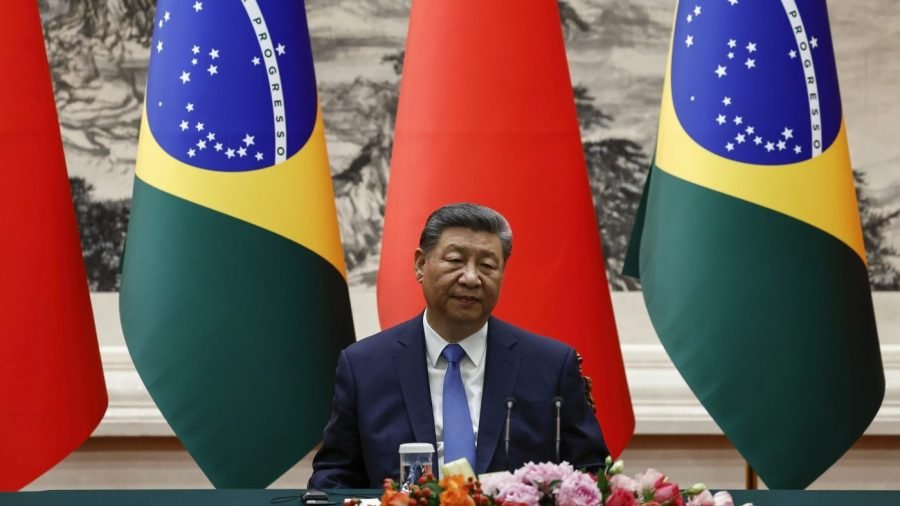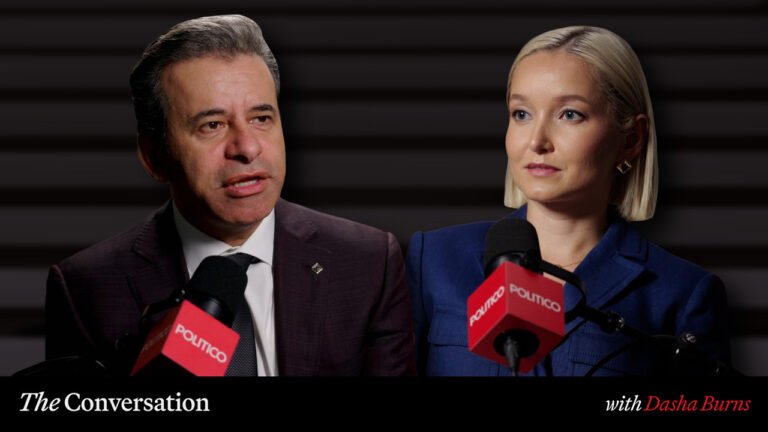
Chinese President Xi Jinping was noticeably absent from the recent BRICS Summit in Brazil. It was a sign of the times.
China is losing ground in Latin America, and many of its companies are packing up for Africa. These events could be the result of a change in the rules of the game — or perhaps just the leadership of President Trump and his new Monroe Doctrine.
The Trump administration has renewed and reinforced the Monroe Doctrine of 1823, establishing a zero-tolerance policy for interference from extracontinental powers in the Americas. These changes have forced China to reevaluate and redirect many of its multi-million-dollar projects in transportation, telecommunications, infrastructure and strategic minerals. Political setbacks also include countries seeking closer ties and stronger alliances with Taiwan, a nation that China claims as its own territory.
China is losing ground in Mexico. China’s BYD, the world’s largest electric car company and main competitor to Tesla, announced that it has canceled the construction of a huge electric vehicle plant in Mexico. The project would have the capacity to produce up to 150,000 cars per year, generating millions of dollars for China. The company seems to recognize the Trump effect; the new U.S. leadership has led them to rethink their expansion plans in Latin America. “Geopolitical issues have a huge impact on the automotive industry,” said Stella Li, vice president of BYD.
China also suffered a massive setback in Ecuador’s mining sector. The firm Terraearth Resources canceled four projects after Ecuador’s government decided to suspend exploration and exploitation activities due to noncompliance with environmental regulations.
The Chinese strategy for controlling supplied of lithium is also failing. BYD and Tsingshan have canceled plans to build lithium processing plants in Chile, investments worth around $500 million and generating a projected 1,200 jobs. Lithium is essential for electric vehicles and is considered a strategic material in trade matters and, more importantly, in security issues. Chile has one of the largest lithium reserves in the world, and China lost lucrative business here.
The defeats and delays of Chinese firms’ projects in Latin America are a result of the new and strengthened U.S. leadership.
Secretary of State Marco Rubio’s first international trip was not to Europe or Asia, but to Central America. A categorical message was sent: Latin America, and especially Central America, are a priority for the U.S. Rubio’s visit resulted in the end of the Belt-and-Road Initiative agreement signed between Panama and China — an unprecedented defeat for the communist geopolitical game in the so-called Global South.
In Panama, the telecommunications company Huawei also suffered a blow. The Chinese firm, criticized for its ties to the People’s Liberation Army, had to eliminate its systems in 13 strategic locations, which were replaced with American-made technology.
Costa Rica is also moving with the winds of change. The Foreign Trade Promotion Agency sent a delegation to Taiwan to explore business opportunities, particularly in the semiconductor sector, where Taipei is a world leader. Costa Rica’s Intelligence and Security Office also participated in a training session in Taiwan. Both events generated strong diplomatic complaints from China.
The changes in Panama and Costa Rica are not coincidental; they are strategic. These two nations are undisputed leaders in Central America and what they do influences the region. China knows it and is in panic mode.
Trump’s new Monroe Doctrine and leadership through strength are atypical, unpredictable, politically incorrect, but undeniably successful. China is sending clear signals of pressure and pain, reevaluating, restricting and rerouting many of its investments. It is losing the battle one day at a time.
Arturo McFields is an exiled journalist, former Nicaraguan ambassador to the Organization of American States, and a former member of the Norwegian Peace Corps. He is an alumnus of the National Defense University’s Security and Defense Seminar and the Harvard Leadership course.

